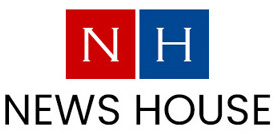
A Chicago shooting involving a Jewish man and the debate over its classification as a hate crime exposes underlying tensions within the community. The shooting took place in an Orthodox Jewish community where the shooter yelled “Allahu Akbar.” This incident has sent shock waves throughout the neighborhood.
The Incident in Chicago
A violent event unfolded in Chicago when Sidi Mohamed Abdallahi, a 22-year-old man, approached a 39-year-old Orthodox Jewish man from behind and shot him in the shoulder without any prior interaction. At the time of the assault, Abdallahi reportedly yelled “Allahu Akbar,” adding a layer of religious motive concerns. This attack took place in a neighborhood known for its large Orthodox Jewish community, intensifying fears and questions about the event’s potential categorization as a hate crime.
Abdallahi’s violent spree didn’t stop there; while escaping, he fired at responding police officers and paramedics, hitting an ambulance though not injuring any first responders. The authorities eventually subdued him after a shootout, leaving him in critical condition in the hospital. Following his arrest, multiple felony charges awaited him, including six counts of attempted first-degree murder and seven counts of aggravated discharge of a firearm.
An Orthodox Jewish man was shot and taken to a local hospital in critical condition on his way to synagogue. An investigation is underway to determine whether the shooting may have been a hate crime.https://t.co/QgBcMoFt6e
— Foundation to Combat Antisemitism (@FCASorg) October 28, 2024
Debate Over Hate Crime Classification
The absence of a hate crime charge amid the attack’s circumstances has sparked significant debate. Community leaders and residents are questioning whether religious bias played a role, given the attack occurred as the victim was heading to a synagogue. Chicago police superintendent Larry Snelling remarked, “The first thing is we have to find out who’s committing the crime. Secondly, we have to find out the motive for the crime. We don’t just go in and assume that everything is a hate crime, but what we don’t do is rule out the possibility that it could be.” Both authorities and the community continue to scrutinize the motives behind Abdallahi’s actions.
The investigation into the attack continues, amid public discourse over how terms such as ‘hate crime’ are applied. Police efforts remain focused on unraveling the perpetrator’s intentions, keeping open to any potential bias finding. The legal community and city leaders stress the importance of precise legal categorizations to ensure justice is served while safeguarding communal trust.
"Jewish leaders in Chicago are urging the local prosecutor to upgrade the charge against a Muslim man who allegedly shot a Jewish man walking to synagogue in West Rogers Park, home to one of the city’s largest Orthodox Jewish populations, to a hate crime."https://t.co/32Jb3G7Qvq
— Josh Kraushaar (@JoshKraushaar) October 28, 2024
Community Concerns
The shooting has left the local Jewish community on edge, concerned about safety and urging authorities for clarity on crime motives. Meanwhile, discussions extend beyond Chicago, as Jewish communities nationwide look at this incident’s unfolding to seek reassurances against faith-targeted violence. Ensuring community security while maintaining individual rights remains a delicate balance for Chicago authorities, even as they aim to resolve outstanding questions surrounding this alarming crime.
As the investigation progresses, many hope for transparent communication between law enforcement and communities affected by such incidents, allowing for collective healing and trust restoration amid heightened social concerns.













